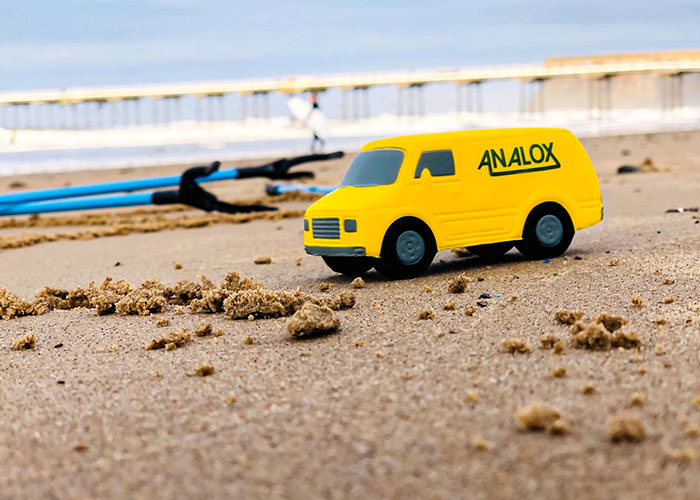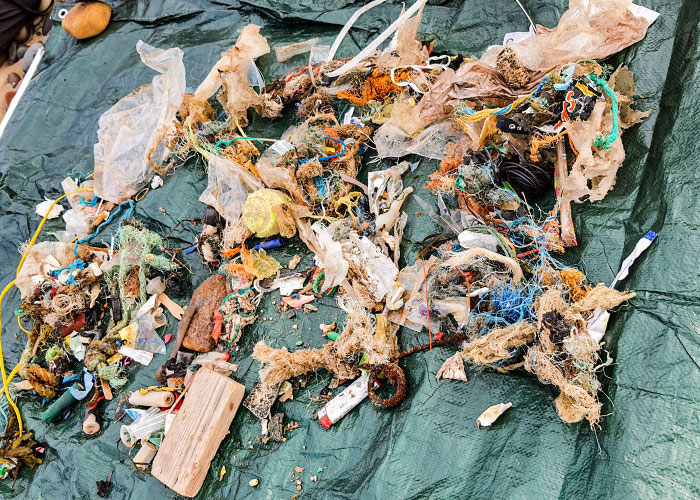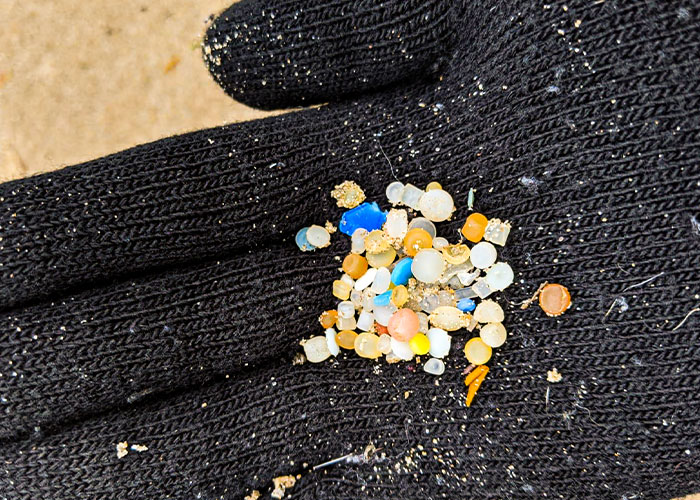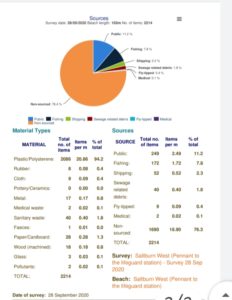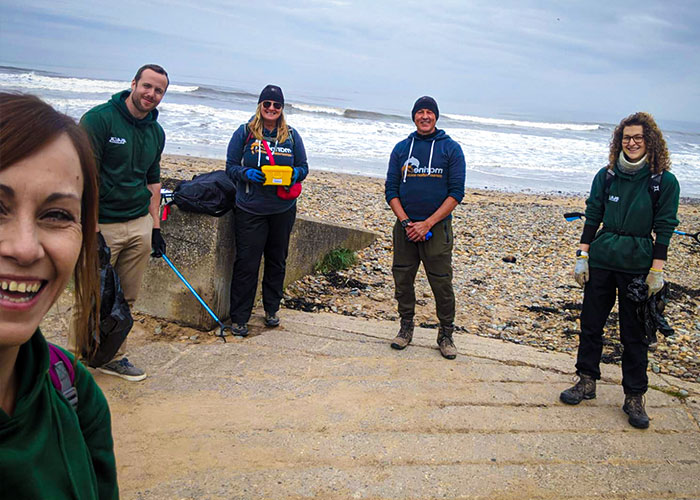Nurdles vs Nature – An Analox Awakening…
Author: Bob Ross
Group Digital Marketing Manager
Date of publication: 02.10.20
Analox recently participated in a large-scale, national beach clean initiative that aimed to clean up and highlight the level of dangerous materials that are found on our beaches.
Saltburn, in the North East of England was our team’s choice of destination. The beach displays some truly breath taking scenery, supplies award winning fish & chips and provides one of the best places to surf in the UK, so it is easy to see how the beach receives 100’s of visitors each and every day.
Analox combined forces with volunteers from the Marine Conservation Society and received an education in all things damaging our beaches and endangering the wildlife. To our untrained eye, the beach looked completely clean and free of any pollutants. It wasn’t until our hosts explained what to look for that we discovered a whole host of foreign objects that were threatening the lives of those in this habitat.
During just a two hour cleaning effort, the team had collected 2,214 dangerous objects, ranging from cotton bud stalks, confectionary wrappers, bottle tops, fishing ropes and nets, plastic bags, sanitary waste, small plastic and polystyrene pieces, glass, metal and even shotgun shells. All these objects were collected in just a 100m stretch of beach!
One item that the team found to be fascinating to learn about were nurdles. Their funny aside, nurdles are extremely dangerous tiny bits of plastic that can be found when the tide goes out and hundreds of them are left embedded on the shore. As you can imagine, fish and birds would happily eat these thinking they were edible, when in fact, they will cause great discomfort and death to any creature that digest them.
It was a real eye-opener for the team to see first hand, the dangerous level of pollution on just a 100m stretch of beach. We can’t stress enough the importance of disposing of waste in the correct way in-order to preserve our environment and protect it now, and for future generations.
The itemised data below demonstrates the magnitude of the problem encountered on a daily basis, even just on a short stretch of beach. Multiply this by the number of beaches globally and the reality really hits home.
Small steps, such as the recent ban on plastic straws being manufactured in England, go some way to making a significant positive change to protecting wildlife and the environment.
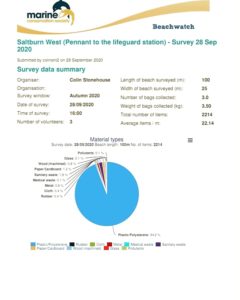
Eight million metric tons: That’s how much plastic we dump into the oceans each year. That’s the equivalent of nearly 57,000 blue whales — every single year. At this rate, by 2050, ocean plastic will outweigh all of the ocean’s fish!
“We must all challenge our daily outputs and the use of plastics. We must all recognise that the levels of marine pollution is unacceptable and do all we can to the litigation of litter, marine pollution and the dangers it poses to our marine wildlife and public. It is not too late to turn the tides”
Colin – Marine Conservation Society
“The small steps and changes we make today will echo through time as we aim to create a cleaner and brighter future for all”
Becca – Analox Group
We would like to say a huge ‘thank you’ to the Analox volunteers and to the Marine Conservation Society for showing us the way forward. We hope to educate, influence and inspire those around us so that we can all make a conscious effort to be mindful of our waste and help to make our world a better one.
Until the next one…
